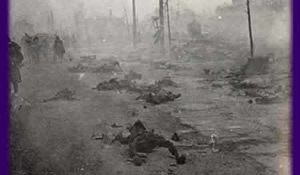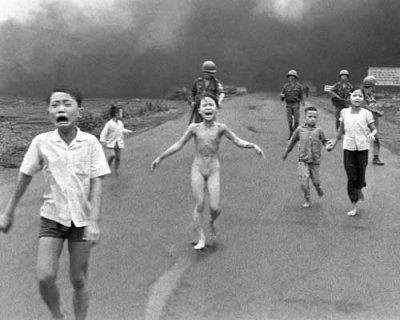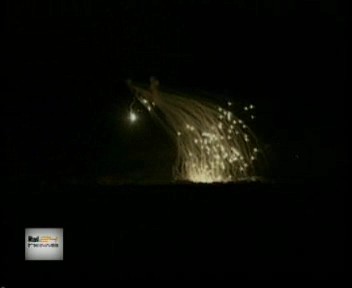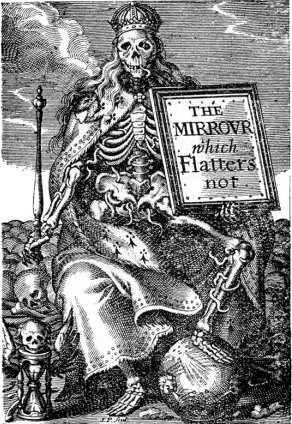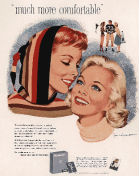Over My Shoulder #2: from Adam B. Ulam’s Stalin: The Man and His Era
You know the rules. Here’s the quote. This week’s is again from reading on the bus; this time, it’s from Ulam’s Stalin: The Man and His Era.
The first and fundamental battle touched on the role of the trade unions. Here his [Lenin’s] success in repulsing the demands that the unions run the economy, and that Russia should have in effect workers’ control of industry, was greatly helped by Trotsky’s impolitic intervention in the debate. The War Commissar spelled out what Lenin was thinking but was too diplomatic to say, and did so with brutal explicitness: it was sheer nonsense to babble about proletarian democracy when Russia’s economy was in ruins and required military methods to get going again, he argued. The unions had to be strictly controlled by the Party. All democratic and egalitarian compunction had to yield to the drive for higher production. Marxism, he reminded the Party, never promised equality until the final stage of abundance of Communism was reached. Men work because they have to, and work well because of material incentives. Just as the Civil War could not have been won without military specialists, so the war for production for socialism could not be carried on without skilled managers and engineers.
Trotsky’s frankness enabled Lenin to play the role of a moderate, of an arbiter between the
anarchosyndicalistShlyapnikov and themilitaristTrotsky. God forbid that the workers’ state should abolish the workers’ unions or turn them into purely administrative agencies! No, trade unions should function freely, they should beschools of Communism.But the state (i.e., the Party) should control the economy. With Trotsky once again serving as the lightning rod for antiauthoritarian and egalitarian forces, Lenin’s position was endorsed by the Ninth and Tenth Party Congresses in 1920 and 1921.Stalin eschewed a prominent part in this trade union dispute–wisely for his future career. Though there was some superficial similarity between the Workers’ Opposition postulates and those of the
military oppositionduring the Civil War, the background of the dispute was quite different. The opponents of military specialists had often been motivated by their own ambitions to command; here, whatever the personal motives of Shlyapnikov or Kollontay, there was a genuine grassroots feeling of resentment among the workers at the return of thecapitalist boss,rechristenedeconomic specialist.Stalin may even have shared this feeling. Class hatred was not the least prominent among his many hatreds. As dictator he licensed the trials of managers and engineers who were made to confess to belonging to a fictitiousindustrial party,etc. But of course he was also the man who would subjugate trade unions and submit the workers to a discipline undreamed of by Trotsky at his most authoritarian, and who would create that Soviet managerial elite whose emoluments and privileges made the special benefits of thebourgeois specialistsof the 1920s seem puny by comparison. Now he stood firmly behind Lenin and his allegedly compromise position. It gave him a welcome opportunity to assail Trotsky–a man, he said, whodoes not understand the difference between the army and the working class.Persuasion rather than compulsion, as Trotsky would have it, should be used to harness the labor unions in the task of reviving the economy.Another of Stalin’s infrequent interventions in the issue that rocked Russian Communism for about three years was on the opposite front, that against what Lenin called the
anarchosyndicalist deviationof Shlyapnikov. Despite the several condemnations of Workers’ Opposition postulates by Party Congresses and Conferences, thisdeviationkept popping up like some medieval heresy condemned by Church councils but embedded in the simple faith of laymen. The regime therefore resorted to chicanery against the more prominent Opposition leaders. They were sent on missions abroad–thus began Mme. Kollontay’s long diplomatic career. Michael Tomsky, who was enormously popular with workers, showed himself not free from error: it was discovered that he was badly needed for Party work in Turkestan. A few months among the sands of Central Asia, and he came back chastened and ready to support Lenin. In a secret vote the Tenth Party Congress authorized the Central Committee to throw out people from the Party for factionalism. Still the damnable heresy persisted. It raised its head at the Fourth All-Russian Congress of Trade Unions in May 1921. And somebody in the Party Secretariat (it shows what a mess its affairs were in before Stalin took over) had the fantastic idea of delegating Ryazanov to defend the official Party line before the Communist caucus of the Congress.To be sure, the old eccentric had supported Lenin on the issue. Always ready with a quip, Ryazanov convulsed the gathering by declaring that Mme. Kollontay’s proletarian zeal reminded him of those wellborn maidens who in the 1870s went
to the peopleto instruct the benighted peasants in the latest political fashions. But he was a hopeless individualist, and it occurred to him while he was speaking that, by God, it was true that the unions were being run in an undemocratic way! So he proposed an amendment, which carried, stipulating that union officials should be elected according to scrupulous democratic norms. Lenin, Stalin, and Bukharin had to rush in to try to undo the damage. This sudden emergency had the usual effect on Stalin of transforming him from a skillful and judicious political manipulator into a violent and threatening accuser. He lashed out at Ryazanov and those who supported him.Shut up, you fool!he shouted, when Ryazanov interrupted his speech. It fell to Lenin to sooth tempers and to persuade the delegates to reverse their vote. Ryazanov, who had answered Stalin tit for tat, was henceforth banned from any activity connected with trade unions.–Adam B. Ulam (1973), Stalin: The Man and His Era. Boston: Beacon Press. pp. 199-202.
Post your own on your website or in the comments, as you see fit.
